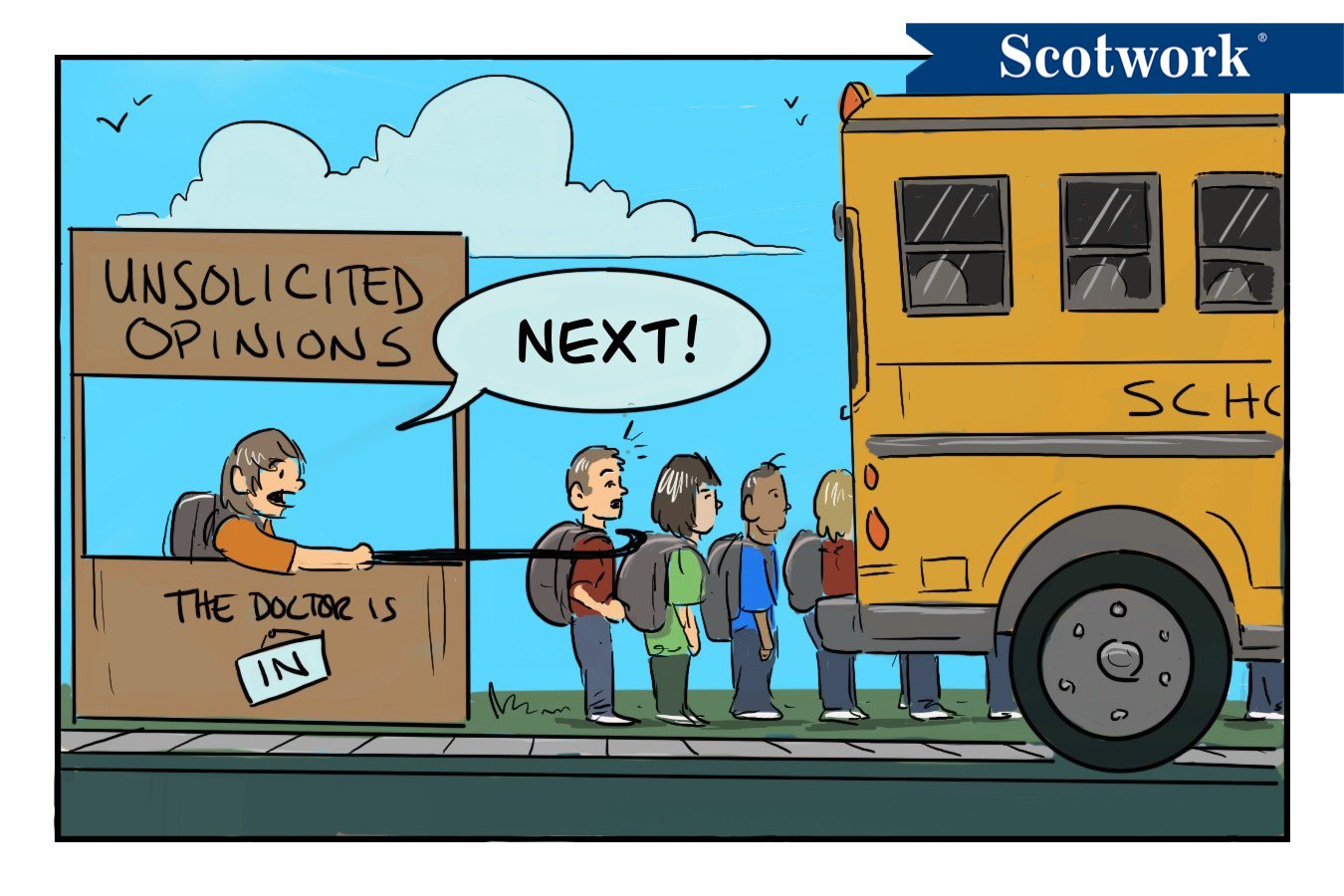Back-to-School can bring about an onslaught of unsolicited opinions and advice — from what supplies to buy to which extracurricular activities your kids should be involved in to how much screen time they’re allowed. It can be overwhelming. Worse yet, it can lead to resentment and frustration, which can ruin an otherwise meaningful moment for you and your family.
I often joke that I was a much better parent before I had kids. Without kids, parenting appeared to be a series of binary choices and dos and don’ts. It all seemed logical and straightforward. In reality, nothing about parenting is straightforward. It’s hard! It’s all about choices, nuance, and subtleties. That’s why it can feel frustrating when people offer unsolicited advice without understanding a situation or circumstance.
The same can also be said for the unsolicited opinions we receive about our work, particularly negotiations we’re involved in. In any professional negotiation, you have onlookers or interested parties. They may be your colleagues, boss, or stakeholders. With spectators come unsolicited opinions and judgment. How we handle those opinions can have an impact on our performance.
When I receive unsolicited advice or opinions, my frustration can turn into defensiveness. I feel judged, and I feel the need to defend my position. That often leads to unnecessary arguments, wasted time, and being distracted from what’s important. But I’ve learned that, most of the time, when people give unsolicited advice, it’s not because they’re judging me — it’s because they’re trying to prove something to themselves.
With that, here are 3 considerations that help me deal with unsolicited advice and opinions . . .
Reframe the advice. Deal with unsolicited advice tactfully by reframing it as an opportunity to learn more about the person offering it. Get curious about why they’re offering it and where they’re coming from. You’ll learn a lot about their motives and priorities by taking an interest in them and not getting hung up on their advice.
See value in diverse perspectives. If a negotiator is caught up in their ego, they may reject advice out of principle. Sometimes, a piece of advice that appears irrelevant may actually prompt new ways of thinking about a challenge.
Deflect politely. Don’t feel pressure to argue about advice you don’t agree with. Instead, politely receive and deflect with replies like, “That’s an interesting point. Thank you for sharing.” More often than not, people just want to be heard, and this is a way of letting them know they’re heard without needing to further engage.
Negotiating is hard enough without feeling the need to defend against every move you make with every bit of unsolicited advice you get. Hopefully, these tips help you stay focused on what’s most important.
We Can Help You Stay Focused on What’s Important.
Negotiations are hard enough without feeling the need to defend against every bit of unsolicited advice you get. Rely on Scotwork’s nearly 50 years of experience to stay focused on making your best possible deal.

